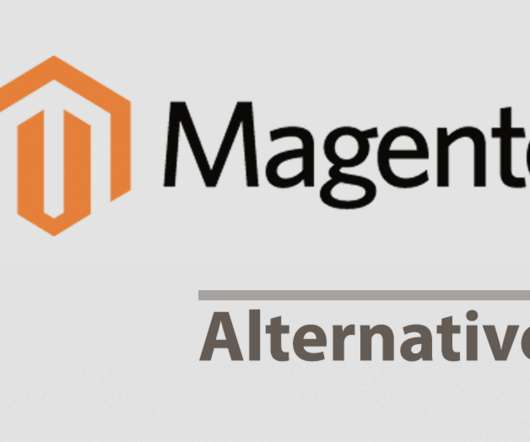Magento Alternatives 2020: Which Is Your Best Option?
Ecommerce Platforms
APRIL 13, 2020
More features are available with the Magento Commerce subscription, including: B2B functionality. Shopify Plus is an ecommerce platform explicitly designed for high-volume enterprise brands. Further reading: Shopify Plus Review – An In-Depth Guide to the Best Enterprise Ecommerce Platform. Site search.












Let's personalize your content